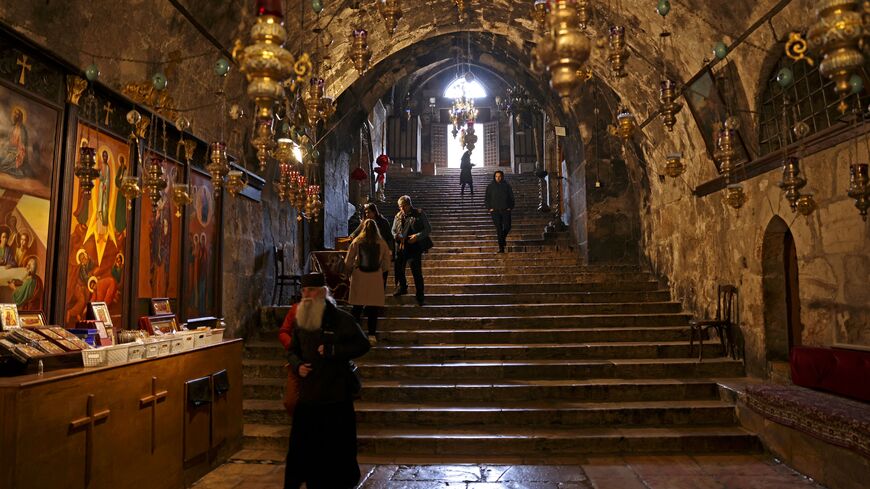Israeli-Jordanian relations have taken a turn for the worse with accusations from both sides over access to Jerusalem's holy sites, ahead of the Greek Orthodox Easter this Sunday, and the Muslim holiday of Ramadan next week.
The Israeli news outlet Walla reported Thursday that Israel is blaming Jordan for fanning the flames over incidents last week at the Temple Mount/Haram al-Sharif compound, when Israeli officers raided Al-Aqsa mosque, and clashed with worshippers that they claimed are barricading themselves at the site. On Thursday, Jordan condemned Israeli restrictions on Christians' access to the Jerusalem Holy Sepulcher Church for the Holy Light celebrations this coming Saturday.
The Walla report cited an unnamed senior Israeli official who specifically blamed Jordanian Foreign Minister Ayman Safadi for exacerbating the crisis. In a reference to far-right National Security Minister Itamar Ben-Gvir, the official said that Safadi had “acted like Jordan’s Ben-Gvir.”
The official commented on two recent meetings between Israeli, Palestinian, Jordanian, Egyptian and American representatives in Jordan's Aqaba and Egypt's Sharm al-Sheikh. The official said that talks, held to calm tensions in the region ahead of the holy month of Ramadan, were positive. But after the first crackdown at Temple Mount last week, when police used force and stun grenades to disperse worshipers who allegedly amassed firecrackers and stones to attack Jewish visitors, Safadi grew resistant in communications with US and UAE interlocutors.
The increase of bilateral tensions was also evident in Jordan's reaction on Thursday morning to reports that Israeli authorities intend to restrict the number of Christians entering Jerusalem's Holy Sepulcher Church for the Holy Light celebrations this coming Saturday.
The Holy Sepulcher church is rather small. In past estimates, police warned that it can safely hold 1,800 people at a time. Following objections by Greek Orthodox church leaders on Wednesday ahead of the Holy Light ceremony, the Israeli police said they will allow 2,200 people inside the church and 1,000 in the courtyard and on the roof. The same issue came up last year, with the Greek Orthodox church petitioning to the High Court against a similar decision by the Jerusalem police, claiming it was motivated by religious discrimination and breached the status quo in the city. At the time, the court said it would not interfere with the security considerations of the police.
Spokesperson for the Jordanian Foreign Ministry Sinan Majali condemned the news, saying that Israel must respect the historical and legal status quo in Jerusalem and its holy places and avoid limiting visits by Christians and any other measures that infringe upon freedom of worship in the city. Majali said that as custodian of the Islamic and Christian holy places in Jerusalem, Jordan will continue in its efforts to protect and preserve the historical status of Jerusalem as "a symbol of tolerance and harmony."








